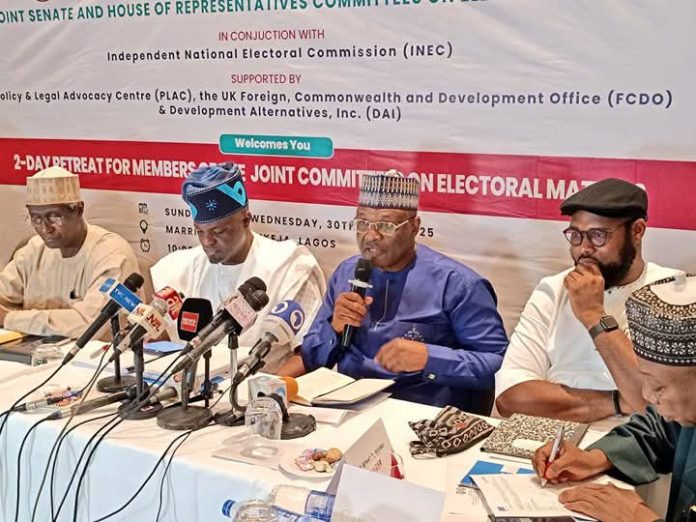The Chairman of the Independent National Electoral Commission, Mahmood Yakubu, has emphasised the critical need for continuous reform of the electoral legal framework for better conduct of elections in the country.
He made this demand during his opening remarks at a two-day retreat between the commission and members of the Joint Committee on Electoral Matters.
A statement posted on the social media page of the commission on Monday indicated that the ongoing event brought together members of INEC, lawmakers, electoral stakeholders, and development partners to address emerging challenges rocking the nation’s electoral umpire and credibility of polls.
Yakubu welcomed attendees, noting that the retreat provides a “unique opportunity” to enhance Nigeria’s electoral process through legislative review and shared field experiences.
He recalled a similar retreat in March 2020, which led to the repeal and re-enactment of the Electoral Act 2022. That collaboration, according to him, marked the first time lawmakers, INEC, and stakeholders collectively addressed critical aspects of electoral laws, including technological innovations, judicial compliance, and observer recommendations.
The INEC chairman highlighted significant improvements stemming from past reforms including extended timeline which has to do with the amendment to allow 180 days between party primaries and elections up from 60 days, adding that the intervention resolved chronic logistical delays.
He said the extended timeline ensured the 2023 general elections proceeded without postponement, the first time since 2010.
Another improvement, he pointed out is local production of materials, explaining that for the first time since 1999, all sensitive election materials were printed in Nigeria, a feat he said was praised by the Chartered Institute of Professional Printers of Nigeria.
Yakubu outlined ongoing challenges requiring legislative attention, stating the need for technological integration.
The commission’s boss said strengthening legal backing for INEC’s innovations, such as electronic voting systems and clarifying ambiguities in electoral laws to minimise pre- and post-election disputes would go a long way in engendering fair and acceptable polls.
Emphasising adoption of good practices, Yakubu demanded incorporation of recommendations from past reform committees, including the Uwais (2009), Lemu (2011), and Nnamani (2017) reports.
The chairman stressed that such retreats offer deeper engagement than standard committee hearings, enabling lawmakers to gain first hand insights into election management challenges.
He also acknowledged the support of development partners in advancing Nigeria’s electoral integrity.
As the retreat continues, the statement noted that INEC plans to share field experiences with lawmakers to guide further amendments to the Constitution and Electoral Act.
The goal, Yakubu said, is to fortify Nigeria’s electoral framework ahead of future polls.

